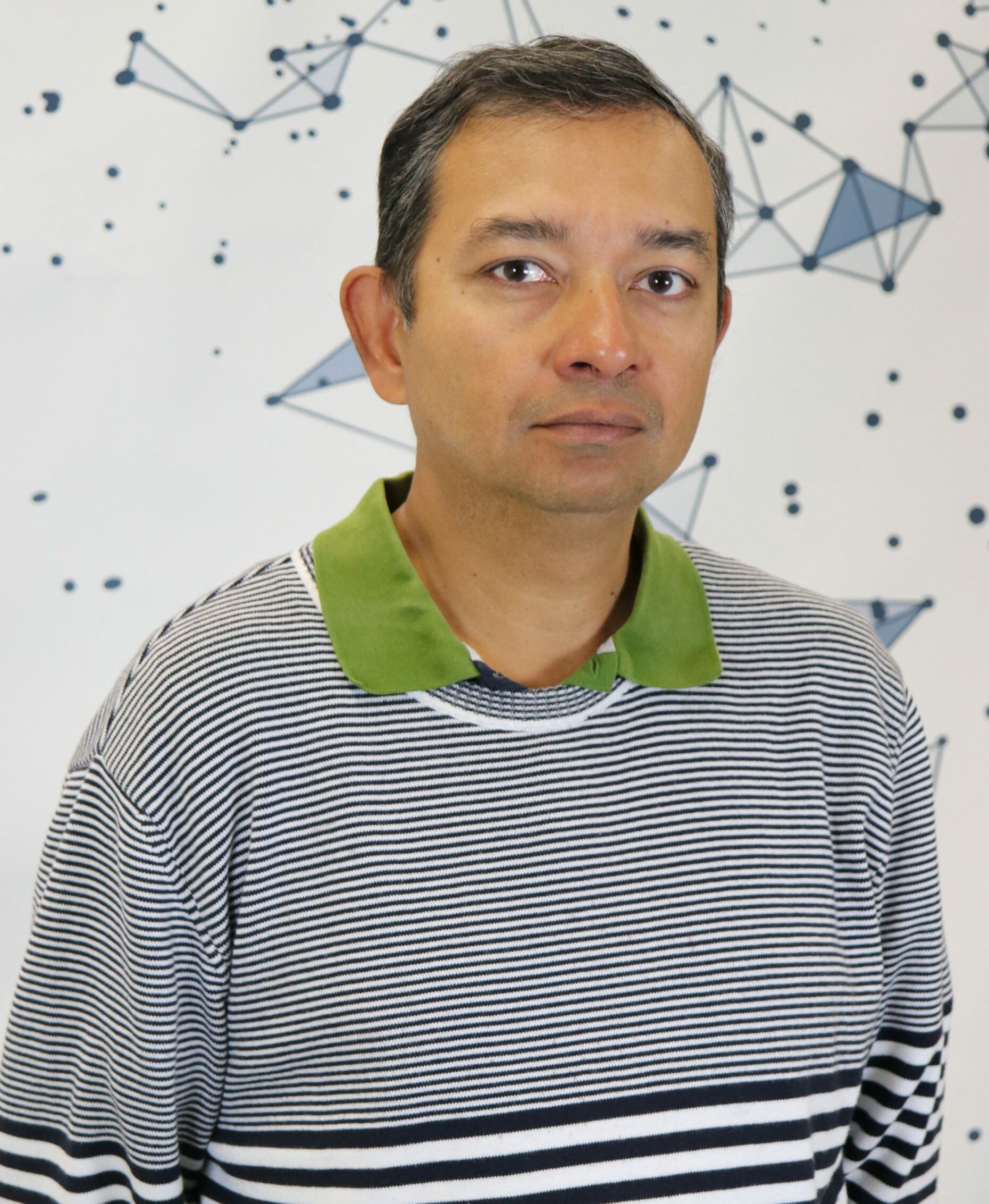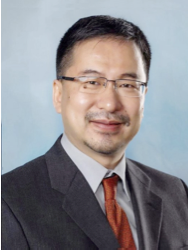
Speaker:
Prof. Suman Banerjee
David J. DeWitt Professor
Department of Computer Sciences
Department of Electrical and Computer Engineering (Affiliate)
University of Wisconsin-Madison
Keynote 1: The Roaming Edge and its Applications
Time: 8:45-9:45am, Monday, Sept. 25, 2023
Session Chair: Guoliang Xing, the Chinese University of Hong Kong
Abstract:
Edge computing provides a new way to implement services with many unique advantages. While many edge computing solutions have been implemented within different network infrastructures, in this talk, we will explore the "roaming" edge of the Internet --- in vehicles -- where computing services are increasingly important, and appropriate edge capabilities need to be rolled out. We will describe how this roaming edge can be used to scale diverse applications.
Bio:
Suman Banerjee is the David J. DeWitt Professor in Computer Sciences at the University of Wisconsin-Madison, with an affiliate appointment in the Electrical and Computer Engineering in the same university. Along with students, post-docs, and collaborators, he has published more than 100 papers in leading conferences and journals and technology. Some of the recognition accorded to the body of work include award papers at conferences such as ACM MobiCom, ACM CoNEXT, and IEEE Dyspan, the grand prize at the Wisconsin Governor’s Business Plan Competition, and awards at the Interdigital Innovation Challenge. Further, research from his group has led to three startups in the last decade. He was the recipient of the inaugural ACM SIGMOBILE Rockstar award for early-career achievements in mobile computing systems. He is a fellow of the ACM and the IEEE and served as the Chair of ACM SIGMOBILE between 2013 and 2017.
Speaker:
Lieutenant Colonel Benjamin Pimentel
Lieutenant Colonel, USMC
Marine Corps Lead, Warfighter Engagement
Government Lead, Camp Pendleton 5G Experiment
FutureG & 5G | OASD(S&T) | OUSD(R&E)
Keynote 2: 5G/FutureG Technology for National Defense Challenges
Time: 2-3pm, Monday, Sept. 25, 2023
Session Chair: J. J. Garcia-Luna-Aceves, University of Toronto
Abstract:
The future security environment envisioned in emerging national defense concepts is characterized by the proliferation of unmanned, autonomous, and intelligent systems across all domains and echelons of command. Just as the explosion of intelligent devices designed to automate various aspects of civilian life has given rise to the commercial Internet of Things (IoT), the complex ecosystem of sensors and actuators that will accomplish tasks ranging from intelligence collection to autonomous logistics represents the evolution towards the Internet of Battlefield Things (IoBT). Fifth generation (5G) and future generation (FutureG) mobile wireless networks provide the capability necessary to support the IoBT across joint, allied, and partnered forces. In addition to the high throughput, low latency, and high device density, 5G/FutureG networks offer spectral agility, interoperability, improved security, containerized deployment, and integrated intelligence through innovative approaches such as Open Radio Access Networks (ORAN). This presentation will explore the ways in which 5G/FutureG capabilities support emerging national defense concepts and enable joint, allied, and partnered forces to cooperatively sense, make sense, and act.
Bio:
Lieutenant Colonel Pimentel entered the Marine Corps in May 2007 through the United States Naval Academy. Upon completion of The Basic School and the Basic Communications Officer Course, he reported to Headquarters and Service Company, 7th Marine Regiment in Twentynine Palms, California in June 2008 where he served as the Communications Platoon Commander, deploying to Helmand Province, Afghanistan in support of Operation Enduring Freedom from October 2009 to October 2010.
In March of 2011, he departed 7th Marines for the Naval Postgraduate School in Monterey, California after being selected for the Special Education Program. He graduated with distinction in June 2013, earning a Master of Science in Electrical Engineering and an academic certificate in cyber warfare. Subsequently, he was assigned to the Office of Naval Research in Arlington, Virginia where he joined the Expeditionary Maneuver Warfare and Combating Terrorism Department, serving as the Deputy Program Manager, and Program Manager (acting) of the Command & Control, Communications, Computers (C4) and Cyber Program.
In June 2016, Lieutenant Colonel Pimentel reported to Marine Wing Headquarters Squadron 1, 1st Marine Aircraft Wing in Okinawa, Japan where he served as the Network Operations Officer and the Deputy Assistant Chief of Staff G-6. In July 2018, he was reassigned to III Marine Expeditionary Force (MEF) after being selected to serve as Aide-de-Camp to the III MEF Commanding General.
In July 2019, Lieutenant Colonel Pimentel returned to the Naval Postgraduate School after his selection for the Marine Corps Doctor of Philosophy Technical Program. He graduated with a Ph.D. in Information Sciences in June 2022. Following his graduation, Lieutenant Colonel Pimentel reported to the Deputy Commandant for Combat Development and Integration in Quantico, Virginia where he joined the Force Design Research Group. He is currently on a temporary assignment to the FutureG Office in the Office of the Under Secretary of Defense for Research and Engineering where he serves as the Marine Corps Lead for Warfighter Engagement and leads the Camp Pendleton 5G experiment for Expeditionary Advanced Base Operations.
Lieutenant Colonel Pimentel’s military education includes non-resident Expeditionary Warfare School, the College of Naval Command Staff, and the Joint Cyberspace Operational Planners Course. His personal awards include the Meritorious Service Medal and the Navy and Marine Corps Commendation Medal with gold star.

Speaker:
Prof. Shiwen Mao
Professor and Earle C. Williams Eminent Scholar, Fellow of the IEEE
Director, Wireless Engineering Research and Education Center
Dept. of Electrical & Computer Engineering, Auburn University
Keynote 3: RFID-based Human Pose Tracking: Design, Generalization, and Data Augmentation
Time: 8:45-9:45am, Tuesday, Sept. 26, 2023
Session Chair: Yu Wang, Temple University
Abstract:
In recent years, 3D human activity recognition (HAR) has become an important topic in human-computer interaction (HCI). It is a more challenging problem than classification, and is the enabler of many HCI applications. To preserve the privacy of users, there is considerable interest in techniques without using a video camera. To this end, RFID tags, as a low-cost wearable sensor, provide an effective solution for 3D human pose tracking. In this talk, we first present RFID-Pose, a vision-aided realtime 3D human pose estimation system based on deep learning. The system estimates the spatial rotation angle of each human limb, and utilizes the rotation angles to reconstruct human pose in realtime with the forward kinematic technique. The second part of this talk addresses the generalization problem, when a well-trained system is applied to a new environment. Meta-learning, as an effective technique to improve the model adaptability, is leveraged as a promising solution to the generalization problem. In addition, we present a technology-agnostic approach for RF-based human activity recognition (HAR), termed TARF, which generalizes a trained model to different RF sensing technologies in different frequency bands. With TARF, the cost and the barrier of wide deployment can both be greatly reduced, and more robust performance can be achieved by utilizing the complementary RF sensory data. Finally, in order to mitigate the cost of collecting training data, we propose a data augmentation method based on Generative Adversarial Network (GAN), named RFPose-GAN, to generate synthesized RFID data. Our experiments demonstrate that the synthesized data is useful for training the RFID-Pose model to achieve high pose estimation performance.
Bio:
SHIWEN MAO is a professor and Earle C. Williams Eminent Scholar Chair, and Director of the Wireless Engineering Research and Education Center (WEREC) at Auburn University, Auburn, AL, USA. His research interest includes wireless networks, multimedia communications, and smart grid. He is a Distinguished Lecturer of IEEE Communications Society and the IEEE Council of RFID, and is the Editor-in-Chief of IEEE Transactions on Cognitive Communications and Networking. He received the IEEE ComSoc TC-CSR Distinguished Technical Achievement Award in 2019 and NSF CAREER Award in 2010. He is a co-recipient of the 2021 Best Paper Award of Elsevier/KeAi Digital Communications and Networks Journal, the 2021 IEEE Internet of Things Journal Best Paper Award, the 2021 IEEE Communications Society Outstanding Paper Award, the IEEE Vehicular Technology Society 2020 Jack Neubauer Memorial Award, the 2004 IEEE Communications Society Leonard G. Abraham Prize in the Field of Communications Systems, and several ComSoc technical committee and conference best paper/demo awards. He is a Fellow of the IEEE.